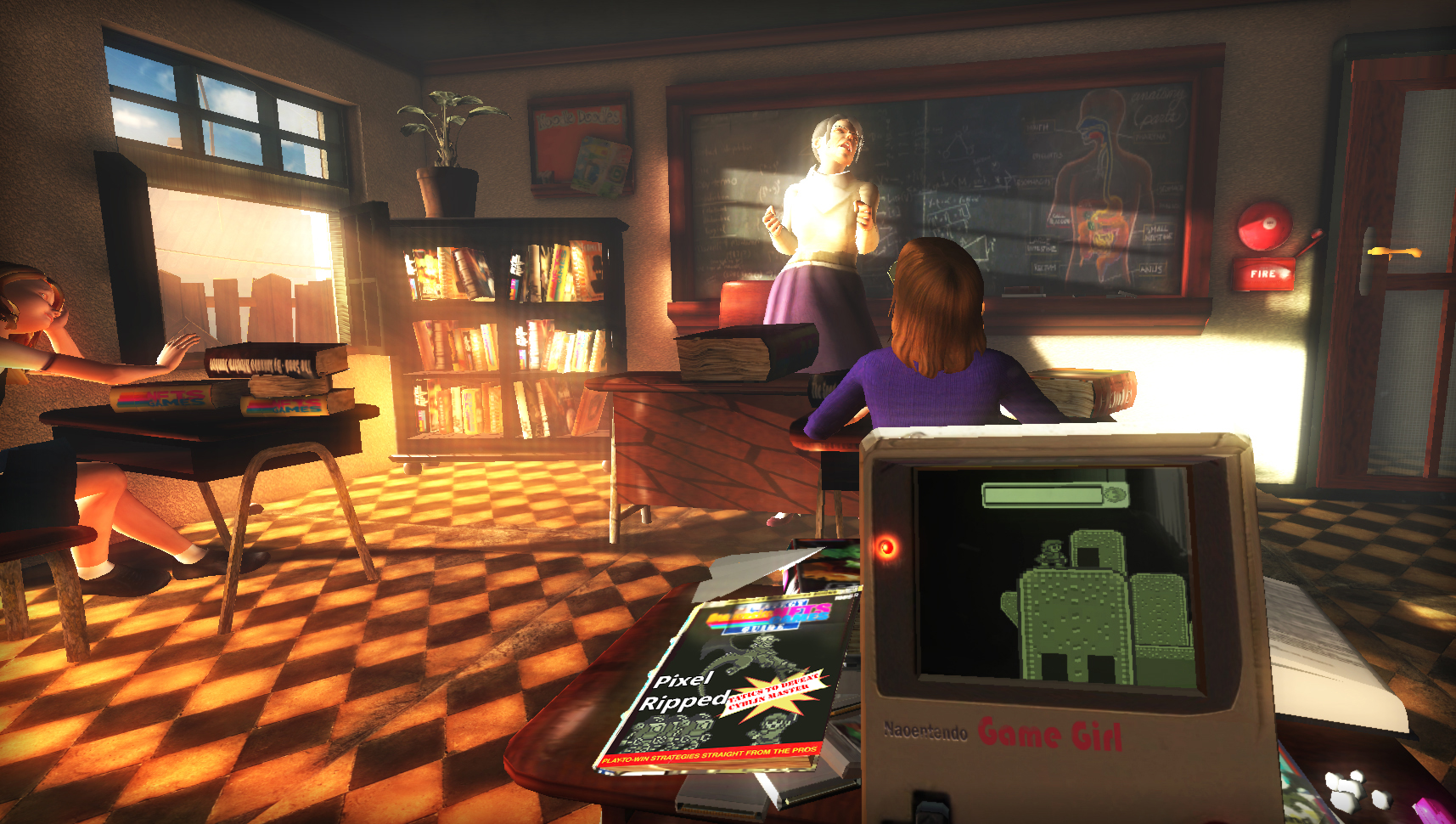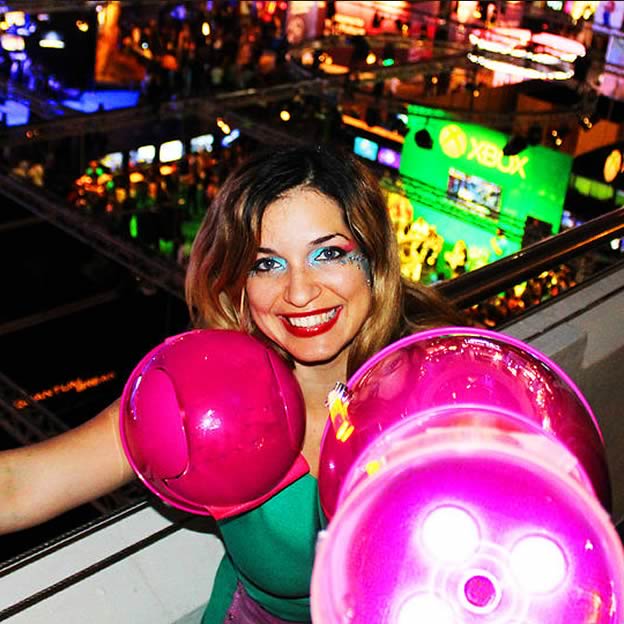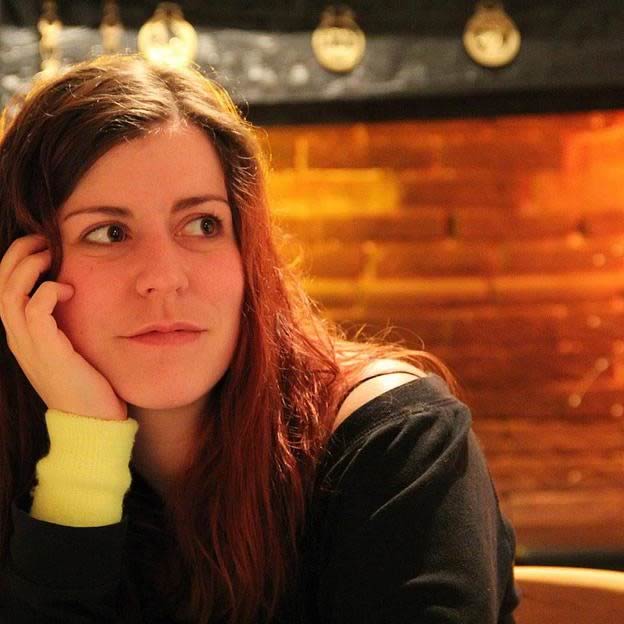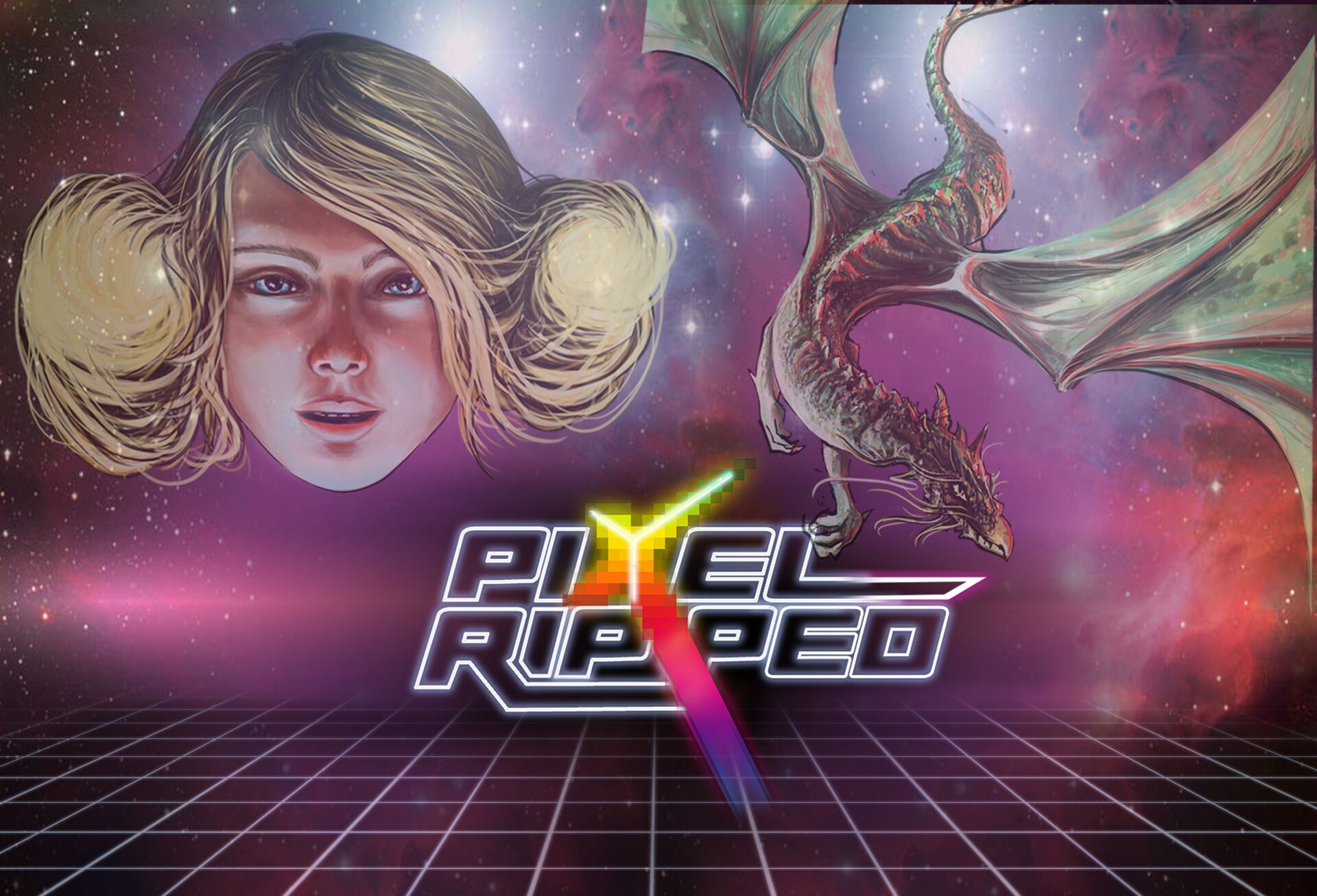The transatlantic quest to make Pixel Ripped, a game about gaming

Developers Stef Keegan and Ana Ribeiro are packing up their office. With less than a week’s notice, the pair is preparing to move from a shared workspace in London to a Silicon Valley accelerator. It’s a drastic but necessary decision. In fact, the future of their virtual reality project Pixel Ripped 1989 (formerly Pixel Rift) depends on it. “We were invited last minute,” says Keegan, “so on Thursday we’re flying out to San Francisco for three months, which is fantastic because staying here at the moment is not an option for us. We can’t work here.” For the record, we were speaking on a Tuesday, and when Keegan says their two-person team can’t work, she really means it.

The history of Pixel Ripped’s development is a tale of setbacks, sacrifice, and determination. The game’s very existence is improbable at best. Just five years ago, Ribeiro had never even considered game design. Instead, she was working for the Brazilian government and nurturing a growing side business selling pies. But as she prepared to take her pie business full-time, she experienced a sudden change of heart.
Oh my god, I’m going to be doing pies for the rest of my life!
“I just realized, ‘Oh my god, I’m going to be doing pies for the rest of my life!’” laughs Ribeiro. “It was the first time that I actually stop and think [about] what I love to do, and I realized I’ve played games my whole life. That’s the only thing I’ve done my whole life that never changed. So I got all my money from my pies, and I didn’t open the business of pies and I sold my car, left my job, and I came to England.”
Once she reached the UK, Ribeiro enrolled in the National Film and Television School’s growing games program, where she not only conceived of Pixel Ripped but also met her unlikely development partner. “Stef was doing the special effects course, and basically during the process, we met,” recalls Ribeiro. “Stef was the revolutionary student from special effects. She decided that she wanted to work with games and not with films.”

Though Keegan originally helped produce 3D assets for multiple student projects, she and Ribeiro reconnected after graduation when Ribiero decided to turn her final project into a commercial product. With existing experience in both crowdfunding and production, Keegan helped Ribeiro organize Pixel Ripped’s initial Kickstarter (which they ultimately delayed) and sidestepped potentially exploitative investors. “We didn’t sign the contracts, they were horrible offers,” says Keegan. “But it was good for us to get together [and] start thinking about, ‘What if we had a company?’”
Thought turned to action, and soon work on Pixel Ripped began in earnest—well, kind of. “Ana was in Brazil and I was working from [London] for two months,” recounts Keegan. “Working remotely, it was just ... every day we probably got half done what we normally would because with bad connection and really it’s just very distracting being apart. Obviously having the team together is so much more motivating.”
Eventually Ribeiro returned to the UK, but this created an entirely new set of obstacles. Chief among them: Ribeiro has been struggling to re-acquire her UK work visa, which has sidelined her and stymied development. “Ana is currently sitting in England, but she is not allowed to work,” explains Keegan. “It’s a real problem for us. We’ve had a couple months now of standstill on development because of it.” With funds running low and time running out before the Oculus Rift’s imminent 2016 launch, a real life deus ex machina arrived to whisk them away to Silicon Valley, where potential investors and other VR developers await (at least, that’s the hope).
Keep up to date with the most important stories and the best deals, as picked by the PC Gamer team.
Into the pixel
This recent turn of events wasn't simply luck, though. It was a hard-won opportunity. Pixel Ripped is achingly clever, packed with nostalgia, and capitalizes on the unique strengths of virtual reality, making it a poster child for the medium itself. The premise is simple, albeit difficult to describe: With the headset in place, you’ll find yourself firmly seated in a typical elementary school classroom with a fully playable 'Game Girl' handheld in your lap. The object, naturally, is to beat the handheld game under your desk without being caught by your already agitated teacher.
In order to avoid a severe disciplining, you can distract her by shooting other students with your peashooter or by simply shifting your view from the Game Girl screen to the virtual blackboard and back to avoid being seen while playing. Meanwhile, the self-contained handheld game lovingly apes all the 2D side-scrolling platformers endemic to the late ‘80s, challenging you to jump and shoot your way across a level Mega Man-style. So, yes, you’re playing one game inside of another game and both are called Pixel Ripped.
“The way I explained this game when I was pitching was basically, ‘This is like a dream in a dream, but it’s a game in a game,’” laughs Ribeiro. In a way, this blending of realities creates a perfect metaphor for VR itself, but on a less cerebral level, it’s instantly relatable to anyone who grew up playing games. “It’s a game about being a gamer,” explains Ribeiro. “I think that’s the best way to summarize it. I used to play Sonic before my brother came back home from his school. So basically there was this other layer of gameplay, which was finishing the game before my brother arrived.”
As I discovered during my hands-on time, though, Pixel Ripped adds another twist that further complicates this game-within-a-game dynamic. Once I’d shot enough spitballs and traversed enough platforms to arrive at the handheld game’s final boss, the battle spilled out of the screen and into the classroom. I was suddenly guiding my 8-bit avatar around the surface of my desk while firing wildly at a monster hovering just below the harsh fluorescent lighting overhead. It was as unexpected as it was awesome. “We’re kind of explaining it with, ‘It’s the magic of the game combined with the magic of [your character’s] imagination,’ so a lot of the situations are almost like she’s daydreaming,” explains Keegan. “But there’s this blurry line between whether the game is actually leaking into the world or whether she’s imagining these crazy situations.”
Your character, by the way, is a young, game-obsessed girl named Nicola who we’ll learn more about as Pixel Ripped progresses. “She’s more your sort of silent protagonist that allows the gamers to imprint their own empathy and emotion onto her,” says Keegan, “but you do get to know more about her and her world, and her kind of quirky, lovable parents will slowly be revealed down the line.” The real narrative, however, apparently springs from the arcade game. “We’re going to have characters talking, we’re going to have intros, and there’s going to be more about the enemy: Cyblin Master,” details Ribeiro. “It’s a crazy story, actually. In the demo we don’t tell much and why the characters come out and what they’re searching for.”
Secrets and ambitions
Regardless of why Nicola’s favorite game characters start leaking into the ‘real’ world, Keegan hints that we can expect plenty more fourth (or is it fifth?) wall breaking moments like the demo’s boss battle as well as other surprises along the along way. “There’s going to be other secret environments that we haven’t revealed yet,” says Keegan. “It isn’t just going to be the classroom, but we’re keeping that kind of secret because we like the thrill of Easter eggs.”
Despite her reticence, Keegan did hint at a trip to the principal’s office and a potential zombie invasion. An early trailer also shows Brazil’s soccer team randomly trampling through the classroom after Nicola shoots down a specific ceiling tile with her peashooter. Clearly Pixel Ripped is not afraid to be silly, but more importantly, all these hidden moments subtly invite a casual form of puzzle-solving that stems from the exact sort of screwing around you’d expect from a kid who’s bored in class.

Even with all this hidden content, however, the team expects the retail version of Pixel Ripped 1989 to provide between 40 and 60 minutes of play time. That may not sound like a lot, but according to Keegan, it will likely be plenty. “My personal feeling is that the experiences shouldn’t be too long because the headsets do become uncomfortable after a time and you do get very hot in there,” argues Keegan. “I also think that people who are buying the headsets for the first time are going to want to try a bit of everything, so bigger games that are more expensive maybe won’t do so well in the early days.”
I would finish this game even if I had to be in the garage.
Keegan also has one final curveball: While the overall franchise is called Pixel Ripped, next year’s Pixel Ripped 1989 will be just one of five eventual episodes, all which will feature Nicola at various stages in her life. “The original game was going to be five levels, but we realized with just the two of us that that was really ambitious for a release for next year—it was never going to happen,” says Keegan. “The next one will be 1979. It’s going to be a ‘70s living room, so you’ll be a toddler in that episode and you’ll be playing essentially our version of an Atari system, and that will be very, very groovy.”
With such an ambitious plan in place, the team is certainly going to need those three months of unfettered productivity in San Francisco—though they’ve also turned to Kickstarter in order to license music, hire voice talent, create a Brazilian localization, and find a third full-time team member to help expand Pixel Ripped to platforms beyond the Oculus Rift and HTC Vive. With or without that support, though, both Keegan and Ribeiro seem certain of their purpose. “I would finish this game even if I had to be in the garage,” laughs Ribeiro.
“I have no doubt that VR is going to succeed,” says Keegan. “I feel very excited that we’re here at the beginning, and I think this is where the big names are going to be made in these early days.”
Since the writing of this article, Ribeiro and Keegan have relocated to San Francisco. Keegan says the new setup is "going really well." The estimated delivery for Pixel Ripped on Kickstarter is January 2016, though it hasn't yet reached its £40,000 goal.

